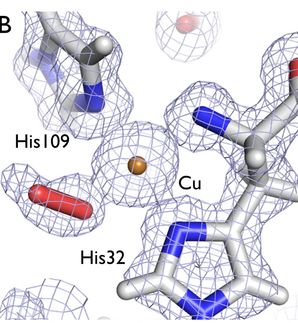Molecular gardening: New enzymes discovered for protein modification pruning
Deubiquitinases (DUBs) are enzymes used by cells to trim protein modifications made from the protein ubiquitin, and thereby regulate proteins. Malfunctioning of DUBs could lead to diseases, including cancer and neurodegenerative disorders. A protein called USP53 has been recently linked with progressive familial intrahepatic cholestasis, a hereditary liver disease in children, yet its mechanism of action has remained elusive. While its sequence made it part of a deubiquitinase family, previous attempt to detect catalytic activity had remained inconclusive. Now, a team led by Malte Gersch, group leader at the Max Planck Institute of Molecular Physiology, together with researchers from the TU Dortmund University and the Erasmus University Medical Center in Rotterdam have decoded the mode of action of USP53 and its related enzyme called USP54. Scientists revealed that both enzymes remove specifically long polyubiquitin chains from proteins. They also identified the proteins that USP53 acts on that could be associated with the liver disease, thereby suggesting how targeted treatment for such diseases could be identified.
Cells adopt a simple trick to modify proteins for specific functions like degradation, DNA repair, or inflammatory response: They tag them with one or more small proteins called ubiquitins. Conversely, cells can also remove them: “Our research focuses on proteins removing those tags, called deubiquitinases,” says Kai Gallant, one of the first authors of the publication. There are about 100 DUBs in humans, with ubiquitin-specific proteases (USP) being the largest family. So far, scientists dubbed USP53 and USP54 “inactive” since they showed little catalytic activity towards ubiquitin. “Yet, mutations in the USP53 gene are associated with paediatric cholestasis, which encouraged us to investigate them,” adds Gallant.
Dissecting the mechanism
The MPI scientists tested USP53 and USP54 on different polyubiquitin chains, and their activity became evident on longer ones: They cleaved specifically polyubiquitin chains called K63-linked, which is one of eight flavors of ubiquitin chains. “This was surprising, as no other human USP enzyme shows such preference for a specific linkage,” says Kim Wendrich, who initiated the project and is first author of the publication. Her work revealed that USP53 and USP54 have different trimming techniques: USP53 shaves the full K63-linked chains away from the substrate proteins, while USP54 shortens them. Both deubiquitinases have an S2 catalytic domain in addition to the usual S1 sites, which enhances their ability to target longer chains.
Finding a disease target
Finally, researchers looked for ubiquitinated proteins that could explain the link between the enzyme USP53 and the cholestasis condition. Previous research found that mutations in USP53 or proteins important for cell junctions, like tricellulin and LSR, can cause similar cholestasis symptoms. The MPI scientists in collaboration with the team in Rotterdam used proteomics and specific methods to isolate ubiquitinated tricellulin and LSR proteins from cells and confirmed that they are deubiquitinated by USP53. They suggest that failing to remove ubiquitin from these proteins is linked to the disease. “Our findings not only add two additional enzymes with novel modes of activity to this group of proteins but also suggest how targeted treatment could be identified for diseases in which ubiquitination plays a critical role,” says Malte Gersch.
























































